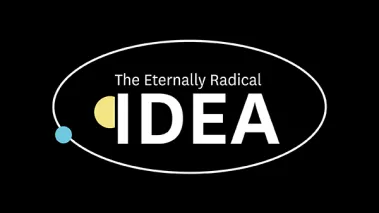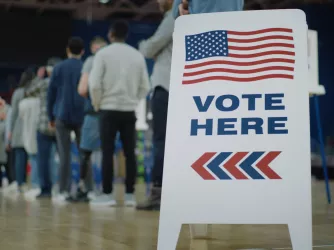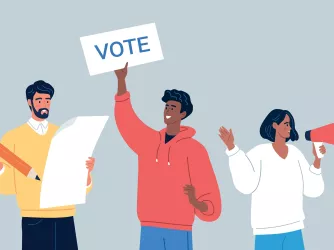Table of Contents
Is counterspeech the best answer to bad speech? Part 15 of answers to arguments against free speech from Nadine Strossen and Greg Lukianoff

In May 2021, I published a list of “Answers to 12 Bad Anti-Free Speech Arguments” with our friends over at Areo. The great Nadine Strossen — former president of the ACLU from 1991 to 2008, and one of the foremost experts on freedom of speech alive today — saw the series and offered to provide her own answers to some important misconceptions about freedom of speech. My answers, when applicable, appear below hers.
Earlier in the series:
- Part 1: Free speech does not equal violence
- Part 2: Free speech is for everyone
- Part 3: Hate speech laws backfire
- Part 4: Free speech is bigger than the First Amendment
- Part 5: You can shout ‘fire’ in a burning theater
- Part 6: Is free speech outdated?
- Part 7: Does free speech assume words are harmless?
- Part 8: Is free speech just a conservative talking point?
- Part 9: Free speech fosters cultural diversity
- Part 10: Why 'civility' should not trump free expression
- Part 11: ‘New’ justifications for censorship are never really new
- Part 12: Free speech isn’t free with a carveout for blasphemy
- Part 13: Does free speech lead inevitably to truth?
- Part 14: Shouting down speakers is mob censorship
Assertion: Free speech defenders wrongly claim that the best answer to harmful, dangerous speech is “counterspeech.”
Nadine Strossen: “Counterspeech” is a shorthand term for any speech that seeks to counter or reduce the potential adverse impacts of hate speech or other controversial speech. A major form of counterspeech is education or information that counters the ideas and attitudes that the problematic speech reflects. Examples of speech designed to counter hateful or discriminatory expression include: proactive education that instills values of tolerance and support for equal human rights for all; responsive information and analysis to refute advocacy of discriminatory policies; and supportive communications to individuals who have been disparaged by hate speech.
Many individuals and organizations have developed a dazzling array of creative, innovative counterspeech strategies to counter an equally broad array of controversial speech, drawing upon every mode of expression — including art, humor, and satire.
Concerning hate speech in particular, those who advocate censorship regularly raise several objections to counterspeech, which all miss the mark. First, contrary to common misconceptions, counterspeech should not be the responsibility of individuals or groups who are targeted by hate speech. Nor should counterspeech be limited to defensive responses to hate speech. Rather, all of us who are committed to countering hatred and discrimination should seize every opportunity to proactively advocate equality, dignity, diversity, and inclusion.
To be sure, some individuals who have been subject to hate speech have recounted their positive, empowering experiences when they have chosen to respond to the speech in various ways — ranging from disputing the discriminatory ideas, to organizing counterdemonstrations in the face of hatemongers’ rallies, to walking away from a hateful speaker. Likewise, it was widely encouraged during the Civil Rights Movement for individuals who have been targeted by hate speech to raise their own voices in opposition, as a way to reinforce their personal sense of dignity and empowerment.
All supporters of full and equal human rights must promote vigorous educational and associated efforts that will equalize meaningful opportunities to engage in speech, specifically counterspeech.
Either words are ineffectual, in which case hate speech doesn’t warrant censorship; or words are powerful, and they can also do good.
For example, psychologists maintain that all of us can learn how to react to speech that seeks to disparage us not with negative feelings about ourselves, which result in stifling our voices, but rather with self-confidence and resilience, which emboldens our voices. It is especially essential to ensure that educational, technological, and psychological resources are deployed to extend free speech opportunities to those whose voices traditionally have been muted. University of Pennsylvania professor Sigal Ben-Porath coined the apt term “inclusive freedom” to connote the ideal of meaningful freedom of speech for all — a freedom that everyone can equally enjoy in reality, rather than a mere theoretical promise that only a privileged few can actually exercise.
Now, let me turn to a second misguided point that critics of counterspeech often make: they belittle its potential positive impact by noting that counterspeech constitutes “only words.” Yet the same point could be made about hate speech itself (as well as other controversial speech). Censorship proponents cannot have it both ways. Either words are ineffectual, in which case hate speech (or other controversial speech) doesn’t cause enough harm to warrant censoring it; or words are powerful, in which case they can do good, as well as harm. In fact, the pioneering law professors who initially advocated legal restrictions on hate speech several decades ago — Richard Delgado, Mari Matsuda, and Charles Lawrence — consistently bemoaned the lack of counterspeech at that time, contending that counterspeech would significantly reduce hate speech’s harmful impact.
While our society still faces serious challenges in remedying hatefulness and discrimination, the specific problems that were so salient for these influential early advocates of hate speech restrictions — the dearth of attention to and support for targets of such speech — are now no longer operative. Hateful, discriminatory expression and actions now not only receive intense media attention, but they are also swiftly and strongly condemned by government officials, community leaders, social media campaigns, and members of the disparaged groups and organizations that champion their rights.
Two British scholars, Dennis J. Baker and Lucy Zhao, have observed that if anyone is marginalized by hateful, discriminatory speech these days, it is those who express hateful opinions. They conclude that “the message that we are all equal . . . is very visible in Western democracies [and] . . . is backed up with a mass of . . . laws.”
As a consequence, “media scrutiny, public shaming, and strong majority attitudes” should “prevent denigrating expression from making those denigrated feel as less than full members of society.” Communications scholar Cherian George, whose 2016 book analyzed hate speech laws in multiple countries, concurs with Baker and Zhao, concluding that “in a society with strong anti-discrimination laws, hate speech may not be able to inflict much harm.”
The question is not how effective counterspeech is in the abstract, but rather, how effective it is compared to censorship.
Given the troubling ongoing reality of hateful and discriminatory attitudes, expressions, and actions, I must underscore that I am hardly concluding that these problems have disappeared. Rather, I am pointing out that the substantial attention and criticism that these problems now receive constitutes a significant example of counterspeech that should reduce the negative toll of hate speech according to the analysis of Delgado, Matsuda, and Lawrence themselves.
There is a third common misconception about the role of counterspeech in redressing the potential harms of hate speech: that counterspeech is expected to serve as the primary, or even only, check on hateful, discriminatory attitudes and actions. To the contrary, as indicated by the researchers quoted above, essential tools include laws against hateful, discriminatory actions, including violence. An enormous body of social science research demonstrates that such laws reduce not only discriminatory conduct, but also discriminatory attitudes. As initially laid out by Harvard psychology professor Gordon Allport in 1954, and as subsequently reaffirmed in hundreds of studies, the most effective way for an individual to overcome his prejudice toward someone he views as “other” is for that individual to interact with actual “others.”
Concerning counterspeech of all kinds, the pertinent question is not how effective it is in the abstract, but rather, how effective it is compared to censorship — additional restrictions on the controversial speech at issue, beyond what U.S. law permits under the emergency principle (invoked when the speech directly, imminently poses specific, serious harm).
Of course, counterspeech does not completely eliminate the potential adverse impact of problematic speech, but neither does censorship. In fact, experts have concluded that censoring any such speech is less effective than counterspeech, and may actually do more harm than good. For instance, multiple human rights activists in many countries and in international agencies have reached this conclusion about hate speech. Even though censoring hate speech is legally permitted in these other countries, the human rights experts have concluded that counterspeech is preferable from a pragmatic perspective. For example, the European Commission against Racism and Intolerance, which monitors the implementation of the many European anti-hate speech laws, recently concluded that, in contrast with such laws, “counterspeech is much more likely to be effective” in countering intolerance.
Parallel conclusions have been reached by experts who focus on disinformation and its potential adverse impacts on everything from public health to democracy. Multiple studies have reached a consensus that the most fruitful avenue for curbing disinformation’s negative potential impact is through various forms of information that can check its spread and influence: targeted responses to specific disinformation, as well as preemptive general educational approaches, enhancing critical media skills. Psychological research shows that even more effective than debunking disinformation after its dissemination is “prebunking”: inoculating people against disinformation before they are exposed to it.
As experience has shown, even the most censorial regime will never be able to completely eliminate the supply of controversial speech; some such speech will be driven underground, and some will be camouflaged in more subtle language to elude the censors. Given the inevitable supply of controversial speech, we must focus on reducing the demand for it by persuading people not to heed it — another essential form of counterspeech.
Greg Lukianoff: In response to a First Amendment News piece by the great Emerson Sykes, I wrote in the previous entry in this series:
As for the contention that “the cure for bad speech is more speech” has outlived its utility, it’s hard to imagine what could adequately replace “more speech” as a remedy. Historically, most “cures” for speech have involved violence, the coercive power of the state, or the illiberal will of the mob or of conformist institutions, from witch burnings to the more-than-550 scholars on campuses throughout the country who have been targeted for punishment just since 2015. Silence is one way to respond to “bad speech” as it is a means of exercising one’s right not to speak. However, silence allows bad ideas to spread without being challenged. So, while free speech may not always cure “bad speech,” more speech is still the best available option for addressing it.
To put some more flesh on the bones, here are some examples of really bad alleged “cures” for “bad speech.”
- Violence, such as hitting a comedian for telling a joke, or much worse.
@thefireorg Speech is not violence #oscars #willsmith #chrisrock #jadapinkettsmith #alopecia #mma #freespeech #comedy #joke #roast #theslap #slap #ufc #selfdefense #censored #lolz #honor #smackdown #bestactor #academyawards ♬ original sound - FIRE
- Shouting down or disinviting a speaker, or charging exorbitant fees to a speaking event in the hopes it will not proceed.
- Blocking the doors of an event venue to prevent people from attending a speech.
- Leveling frivolous defamation suits against writers.
- Firing or making it hard for someone to make a living after they say something controversial.
- Empowering authorities like police or faculty committees to decide what speech is allowed.
Those who discount the “more speech” approach to offensive and harmful ideology would do well to consider the power of creative counter-speech, satire, and mockery:
- The Sad Tuba hilariously following a neo-Nazi and neo-Confederate march.

- The 2010 counter protest of the Westboro Baptist Church at San Diego Comic-Con.

- Charlie Chaplin’s film, “The Great Dictator,” a cutting satire of Adolf Hitler, with a stirring final monologue that far outlived the Nazi regime.

When someone claims “more speech isn’t enough” as an argument against free speech, you should always ask them to be specific about what solution they’d prefer. Often, they won’t be straightforward or specific because they understand that their solution is illiberal or, worse, authoritarian, and, either way, unpalatable.
If they’re honest, they may admit that they don’t have a better solution, or that they have a solution, but haven’t fully thought through its consequences. But most often, they simply assume that they themselves — or someone very like them — will get to decide what speech is allowed. In a world like ours, where political tides turn quickly and often, this is never a safe assumption: When you think you are empowering the next champion of the downtrodden, you may, in fact, be empowering the great dictator who comes after him.
Recent Articles
FIRE’s award-winning Newsdesk covers the free speech news you need to stay informed.

VICTORY! Maine hospital backs down from defamation threat over teen’s criticism

Socratic free speech scholar Frederick Schauer dies at 78 — First Amendment News 446

FIRE reminds Michigan town that residents have the right to ‘concealed carry’ campaign literature in polling places
